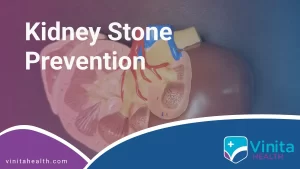Laser treatment for kidney stones has become an increasingly popular method for managing this common condition, and for good reason. This minimally invasive kidney stone laser treatment in Chennai has a number of advantages over traditional surgical methods, making it a promising future for kidney stone management.
How Laser Treatment is Performed?
Laser treatment for kidney stones, also known as laser lithotripsy, is a minimally invasive procedure that uses laser energy to break down stones into small pieces that can be easily passed out of the body.
During the kidney stone laser treatment in Chennai, a surgeon will make a small incision in the patient’s back to access the kidney and then pass a laser fiber through a scope to the location of the stone. The laser energy is then directed at the stone to break it into smaller pieces.
The smaller pieces are then removed or passed out of the body naturally. This procedure typically takes 30 minutes to 2 hours, depending on the size and location of the stones.
Advantages of Kidney Stone Laser Treatment in Chennai
Innovative Technology
As laser technology continues to advance, the procedure has become more effective and less invasive. The use of laser energy to break up kidney stones into smaller pieces is highly effective and can be performed with great precision. This allows for a more targeted approach, reducing the risk of damage to surrounding tissue.
Minimally Invasive
One of the biggest advantages of laser treatment is its minimally invasive nature. Unlike traditional surgical methods, laser treatment does not require incisions and is performed using a small laser fiber. This means that patients can typically return to normal activities soon after the procedure, with a shorter recovery time.
Reduced Pain
Compared to traditional surgical methods, kidney stone laser treatment in Chennai is associated with less pain. This is due to the minimally invasive nature of the procedure and the use of local or general anesthesia during the procedure. Patients can expect a more comfortable recovery experience with laser treatment.
Shorter Recovery Time
Another advantage of laser treatment is the shorter recovery time. Patients can typically return to normal activities within a day or two after the procedure, compared to several days or weeks after traditional surgery. This is due to the minimally invasive nature of the procedure and the reduced risk of complications.
Fewer Complications
The risk of complications is lower with kidney stone laser treatment in Chennai compared to traditional surgery. This is due to the minimally invasive nature of the procedure and the precise targeting of the laser energy. This results in a safer procedure with a lower risk of complications and a more positive outcome for patients.
Effective
The kidney stone laser treatment in Chennai uses a laser in the treatment as it is highly effective in breaking up kidney stones into smaller pieces that can more easily pass through the urinary system. This minimizes the need for additional procedures and reduces the risk of complications. Also, the kidney stone laser treatment cost in Chennai is reasonable.
Convenient
Many laser treatments for kidney stones can be performed on an outpatient basis, allowing patients to avoid the need for a hospital stay. This is a convenient option for patients who would prefer to avoid an extended hospital stay.
Better Visualization
The use of a ureteroscope during kidney stone laser treatment in Chennai provides better visualization of the kidney and surrounding structures, allowing for more precise treatment. This results in a more targeted approach, reducing the risk of damage to surrounding tissue.
Types of Kidney Stone Laser Treatment
- Holmium Laser Lithotripsy: Uses holmium laser to break stones into smaller fragments for easier removal.
- Ureteroscopic Laser Lithotripsy: Involves passing a laser fiber through a ureteroscope to break stones in the ureter or kidneys.
- Percutaneous Nephrolithotripsy (PCNL): A laser is applied through a small incision in the back to fragment and remove larger kidney stones.
- Flexible Ureteroscopy with Laser Lithotripsy: Uses a flexible scope to navigate the urinary tract, targeting stones with laser energy for fragmentation.
Crucial Factors Affecting the Cost
- Choice of Hospital: The cost can vary significantly based on the hospital’s reputation and facilities.
- Doctor’s and Anesthetist’s Fee: Fees for the medical professionals involved in the treatment.
- Condition Severity: The size, number, and location of the kidney stones directly affect treatment complexity.
- Diagnostic Tests: Necessary evaluations to determine the best treatment approach.
- Treatment Method: Specific techniques used in Kidney Stone Laser Treatment in Chennai.
- Medications: Costs for pre and post-operative drugs.
- Hospitalization Expense: Includes charges for admission, room stay, and discharge processes.
- Use of Stent: If required, the stent insertion adds to the overall expense.
- Post-Surgery Care: Costs for follow-up consultations and any additional post-operative care.
These factors cumulatively dictate the financial aspect of undergoing Kidney Stone Laser Treatment in Chennai, making it important for patients to consider each of these elements while planning their treatment.
Conclusion
To conclude, kidney stone management is an important aspect of maintaining good kidney health. The kidney stone laser treatment has a high success rate making it a promising future for kidney stone management. However, it’s important for individuals to consult with a urologist to determine the best course of action for their individual needs and health status besides knowing the kidney stone laser treatment cost in Chennai.
Read also Different Types of Kidney Stones





